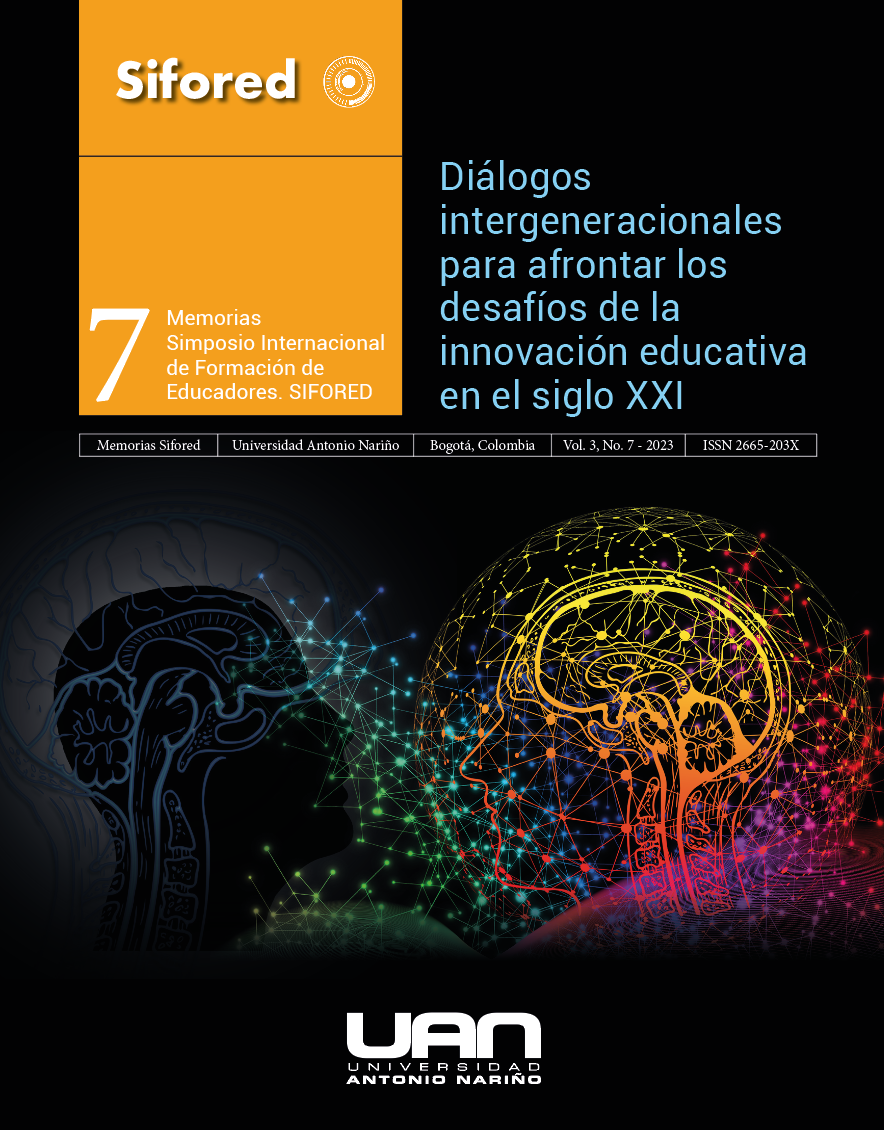Aproximaciones conceptuales a la comprensión de la subjetividad política del docente en derechos humanos
Keywords:
Curricular renewal, Human rights, Teacher, schoolAbstract
Some problematic guidelines immersed in the category of political subjectivity of teachers in the field of human rights education are addressed. The reflection of which runs between the justifications of the ontology of the self and the epistemologically based explanatory efforts of the collective consciousness. Therefore, by means of a theoretical review, the ontological origin of the problem and the way in which some of its comprehension difficulties are weighed in subjectivity as a category are exposed to then demarcate the ways in which it bursts into the recent history of education in Colombia. It is argued that the political subjectivity of the human rights teacher is crossed by the confluence of social forces that come from the field of popular education, the expectations opened by the renewal process of the constitution of 1991 and the reaction in the territories of some sectors of civil society to the intensification of the armed conflict. It is concluded that human rights education in the school environment significantly affects the shaping of the political subjectivity of its protagonists. Teachers tend to increase their potential to establish networks and pedagogical work collectives and to participate in collective actions that go beyond the school environment.
Downloads
References
Arias, G. D. (2021). La subjetividad política docente en la enseñanza sobre el conflicto armado en Colombia. Clepsidra. Revista interdisciplinaria de estudios sobre memoria, 8(16), 142–155. https://ojs.ides.org.ar/index.php/Clepsidra/article/view/153
Barahona, Q. M. (2013). El Papel De La investigación teórica en la construcción del Conocimiento. Revista Rupturas 3 (1):2-16. https://doi.org/10.22458/rr.v3i1.254.
Barrantes, M. L. (2014). Pensamiento crítico y derechos humanos: componentes esenciales en la educación superior del siglo XXI. Revista Latinoamericana de Derechos Humanos, 25(2), 93-105. https://www.revistas.una.ac.cr/index.php/derechoshumanos/article/view/6137.
Bourdieu, P., & Wacquant, L. (2005). Una invitación a la sociología reflexiva: Siglo veintiuno editores.
Burgos, A. J. (2020). Comprensiones sobre cultura política y su relación con las prácticas pedagógicas en profesores universitarios: un estudio comparativo entre una institución pública y una privada. Revista Boletín Redipe, 9(9), 24-47. https://revista.redipe.org/index.php/1/article/view/1059/962
Castoriadis, C. (2006). Figuras de lo pensable: Fondo de Cultura Económica.
Castro- Gómez, S. (2015). Revoluciones sin sujeto: Akal.
De Sousa, B. & Martins, B. (2019). El pluriverso de los derechos humanos. La diversidad de las luchas por la dignidad. Akal.
Foucault, M. (2011). Vigilar y Castigar: Siglo veintiuno editores.
Foucault, M. (2017). Historia de la sexualidad 1. Voluntad de saber: Siglo veintiuno editores.
Herrera, M., Diaz, C, J., Pinilla, A. & Infante, R. (2005). La construcción de la cultura política en Colombia. Proyectos hegemónicos y resistencias culturales: Universidad Pedagógica Nacional.
Laclau, E., & Mouffe, C. (2010). Hegemonía y Estrategia Socialista. Buenos Aires: Fondo de Cultura Económica.
Martínez, P. M. (2006). Disquisiciones sobre el sujeto político. Pistas para pensar su reconfiguración. Revista Colombiana de Educación, https://doi.org/10.17227/01203916.7743.
Martínez, M. C. (2008). Redes pedagógicas. la construcción del maestro como sujeto político. Magisterio.
Martínez, M. C., & Cubides, J. (2012). Sujeto y política: vínculos y modos de subjetivación. Revista Colombiana de Educación, 63, 67- 88. https://doi.org/10.17227/01203916.1687.
Páez, R. D. (2019). Subjetividad política: categoría para la comprensión de la vivencia de la violencia política en los relatos de historias de vida de maestros. Noria Investigación Educativa, 1(3). https://revistas.udistrital.edu.co/index.php/NoriaIE/article/view/16322.
Ramírez, G. B, y Anzaldúa, A. R. (2010). Sujeto, autonomía y formación. Tramas. Subjetividad y Procesos Sociales, (33), 113-130. https://tramas.xoc.uam.mx/index.php/tramas/article/view/564
Sánchez- Antonio, J. (2021). El problema del sujeto en Michel Foucault. Hacia una sociología crítica de la acción social: Universidad del Rosario. https://doi.org/10.12804/urosario9789587848243
Touraine, A. (2006). Los movimientos sociales. Revista colombiana de sociología, 27, 255-278. https://revistas.unal.edu.co/index.php/recs/article/view/7982/8626.
Touraine, A. (2010). Crítica de la modernidad: Fondo de Cultura Económica.
Zizek, S. (2007). El Espinoso sujeto. El centro ausente de la ontología política. Argentina: Paidós.
Downloads
Published
-
Abstract270
-
PDF (Español)84
How to Cite
Issue
Section
License

This work is licensed under a Creative Commons Attribution-NonCommercial-ShareAlike 4.0 International License.


 Portal de Ciencia Abierta
Portal de Ciencia Abierta